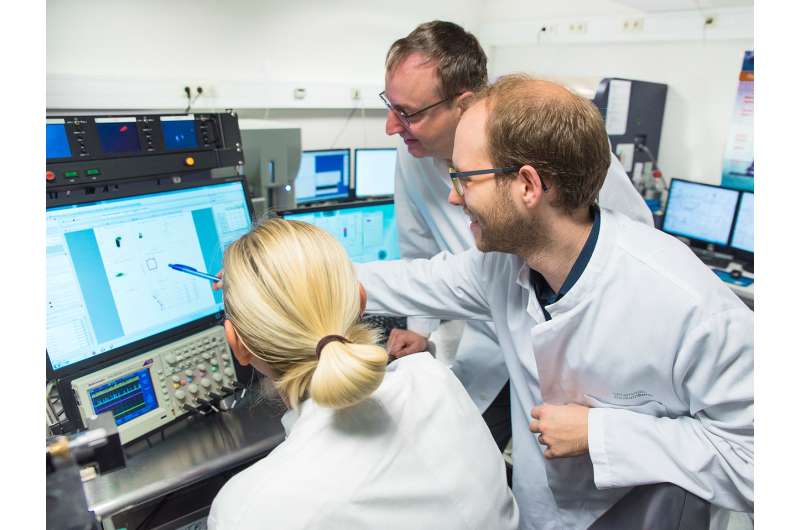Researchers release the brakes on the immune system

Many tumors possess mechanisms to avoid destruction by the immune system. For instance, they misuse the natural "brakes" in the immune defense mechanism that normally prevent an excessive immune response. Researchers at the University of Bonn have now been able to remove one of these brakes. The study, which involved colleagues from Hamburg and Würzburg, could pave the way for more effective cancer therapies. It is published in the journal Cell Reports.
Killer T cells are a powerful weapon of the immune system. Following a viral infection, they swarm out in huge numbers and destroy all of the infected cells. Their destructive power is also directed towards cancer cells—at least in principle. Many tumors have actually developed mechanisms that allow them to outmaneuver this defensive weapon. To do this, they can exploit the so-called regulatory T cells. These are also part of the immune system, but fulfill an opposite function: They suppress the immune response and thus prevent killer T cells from attacking healthy tissues.
Tumors exploit this mechanism by pretending to be normal body tissue. They can thus be protected to a certain degree by the regulatory T cells. "We have now found a way to kill off the regulatory T cells," explains Christoph Heuser, a doctoral candidate at the Institute of Experimental Immunology at the University of Bonn. "We were thus able to significantly increase the impact of the killer T cells."
The study focuses on a protein produced naturally in the body called IKKβ, which is known to promote the activation of immune cells. It is thus considered an immunostimulant. "We have now blocked IKKβ in a test tube with the help of a pharmaceutical ingredient," says Heuser's colleague Dr. Janine Gotot. "The regulatory T cells died off afterward. However, the killer T cells survived and even gained in impact because they were no longer inhibited by the regulatory T cells."
The researchers then tested mice with skin cancer to see whether the IKKß inhibitor would be suitable for tumor treatment. This cancer is currently treated by vaccination and immunotherapies, but these measures are often ineffective. However, the researchers treated the rodents with the IKKß inhibitor shortly after the vaccination. Following around two weeks of treatment, the number of regulatory T cells fell by half. The response of the killer T cells to the tumor was correspondingly stronger. Cancer growth was delayed significantly, and the animals survived for longer.
Combination therapy against tumors
"Nevertheless, complete healing cannot be achieved solely by inhibiting IKKß," said Prof. Christian Kurts, director of the Institute of Experimental Immunology at the University of Bonn. "By combining with other immunological active pharmaceutical ingredients, it may, however, be possible to stimulate the immune system to more effectively combat the cancer."
The regulatory T cells are only one element among many others with which the body keeps its immune cells in check. Experts also refer to these braking mechanisms as "immunological checkpoints." In recent years, the researchers have succeeded in releasing these brakes using suitable inhibiting substances (the "checkpoint inhibitors"). "This approach has already revolutionized the treatment of cancer," says Kurts.
More information: Prolonged IKKβ inhibition improves ongoing CTL antitumor responses by incapacitating regulatory T cells, Cell Reports (2017). DOI: 10.1016/j.celrep.2017.09.082


















